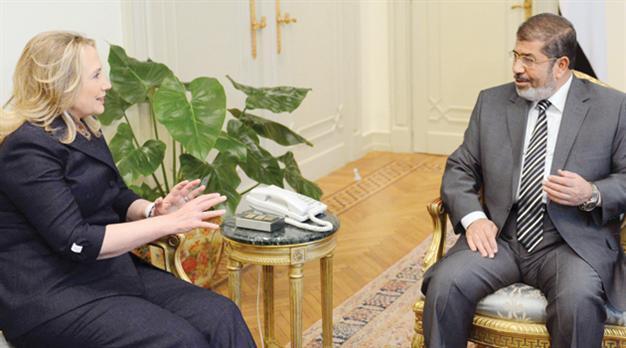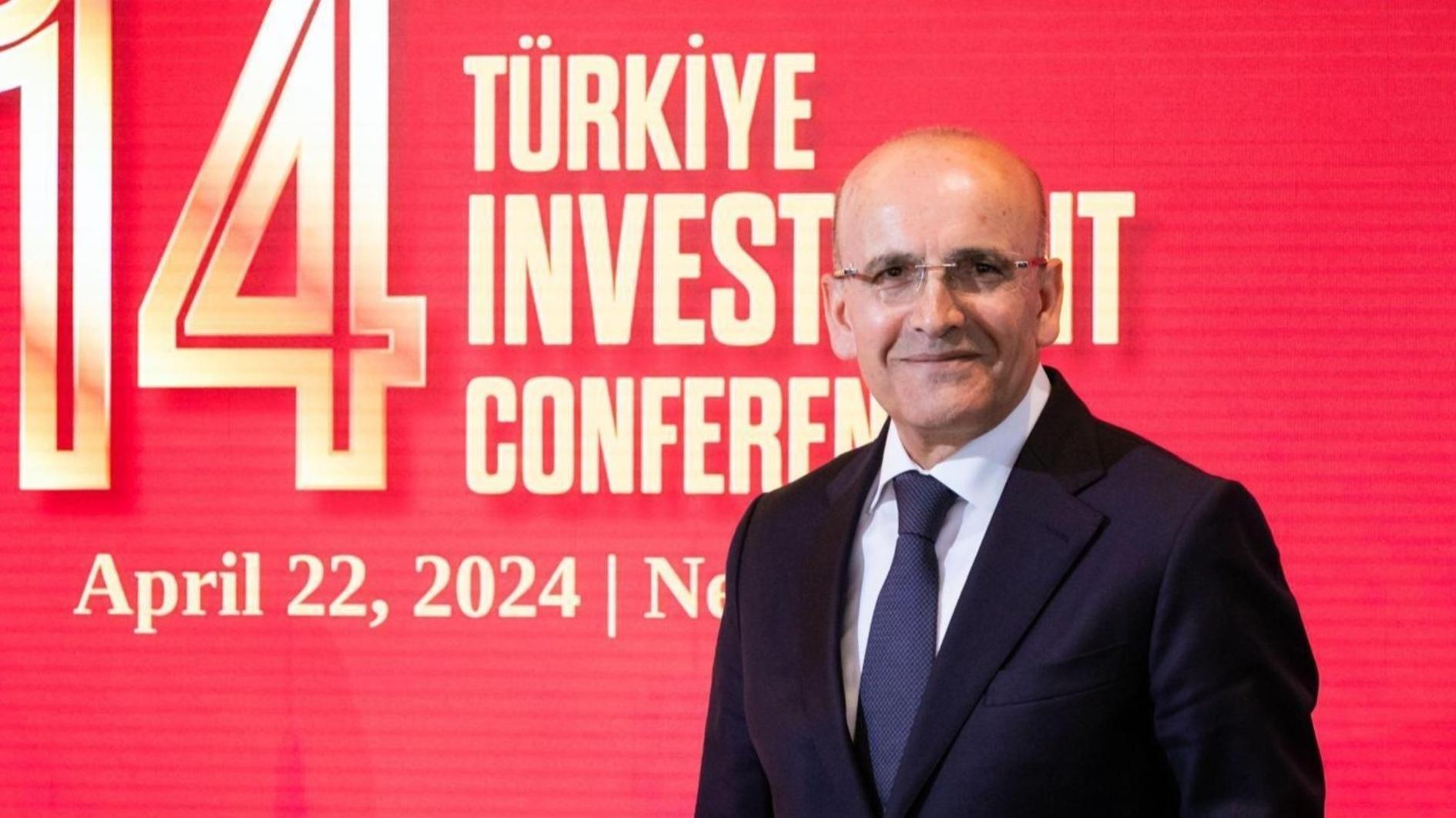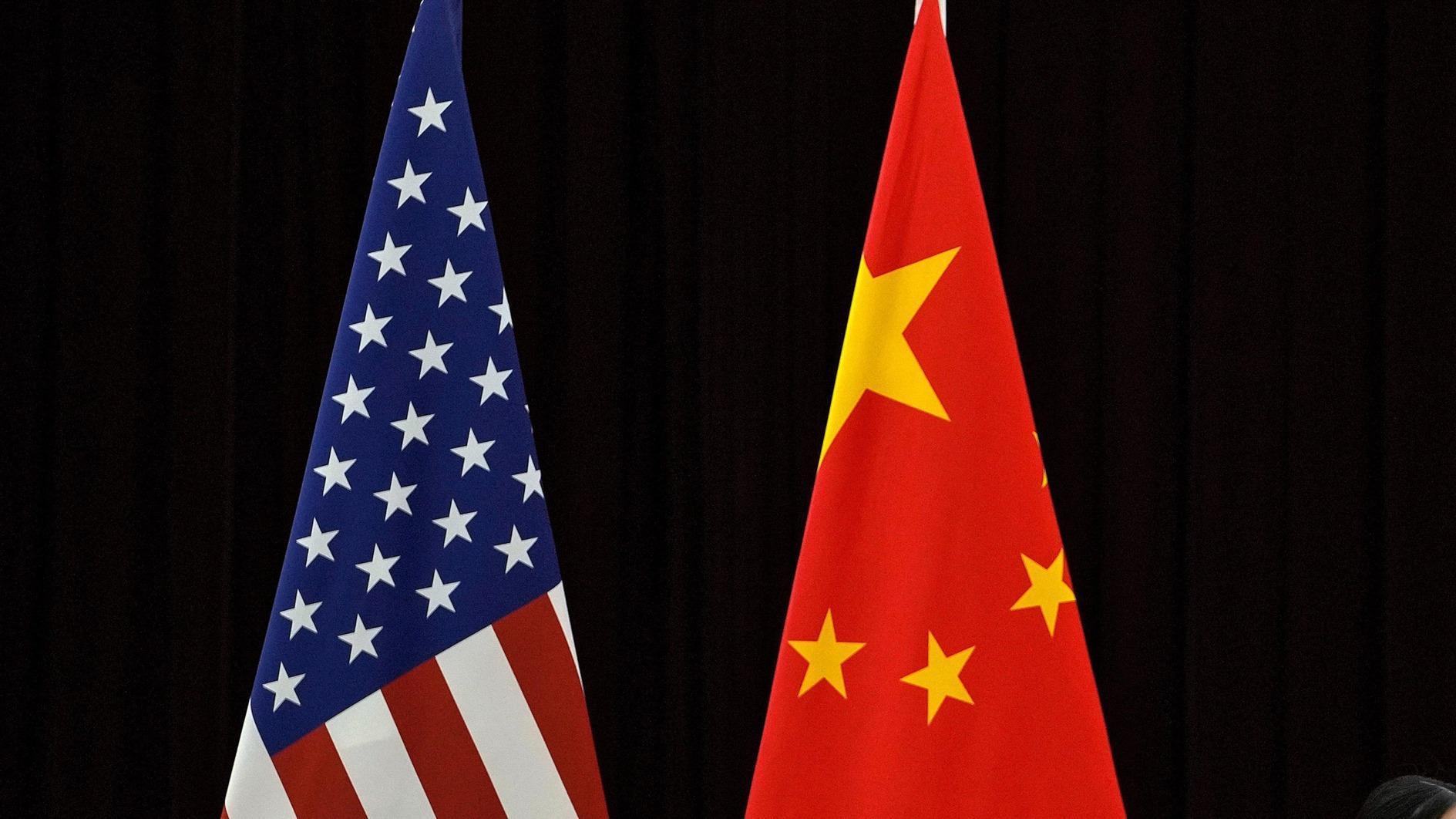Clinton to top generals: Back Egypt democracy
CAIRO

AFP photo
U.S. Secretary of State Hillary Clinton held talks with Egypt’s top military leaders yesterday, just hours after calling for them to help smooth the country’s full transition to democracy.The top U.S. diplomat arrived in Egypt amid a complex power struggle being played out between the newly-elected Islamist president, Mohamed Morsi, and the Supreme Council of the Armed Forces (SCAF).
A day after her first meeting with Morsi, Clinton met with Field Marshal Hussein Tantawi, the country’s interim military ruler after president Hosni Mubarak was ousted last year ending three decades in power.
“They discussed the political transition and SCAF’s ongoing dialogue with President Morsi,” a state department official told reporters after talks lasting just over an hour concluded.
The two also discussed an economic package proposed by Clinton and “Tantawi stressed that this is what Egyptians need most now, help getting the economy back on track,” the official said.
Clinton, who earlier this year certified sufficient Egyptian action toward democracy for $1.3 billion in U.S. military aid to go through, carried the same message to Tantawi as Morsi. Without taking a position in disputes over parliament or how to draft a new constitution, Clinton urged the long-time military chief to return the armed forces to a “purely national security role,” as she termed it on July 14.
Clinton worked hard not to take sides in the current power struggle, though she made clear she believes the military should ultimately be out of politics. She commended the military for defending lives during the February 2011 revolution against the former president and for the progress Egypt made under its interim leadership, which included free and fair elections. She contrasted the approach of the Egyptian military with how Syria’s military is “murdering their own people,” and recognized that the Egyptian military authorities still needed to do more.
Morsi, Egypt’s first democratically-elected president, is locked in a standoff with the military after he ordered parliament to reconvene, defying an army decision to disband the house.
But a declaration issued by SCAF before Morsi was sworn in acts as a temporary constitution and granted the military sweeping powers, including legislative control, even though they had handed power over to Morsi on June 30.
While Morsi’s decree was applauded by supporters, it set off a firestorm of criticism from opponents who accused him of overstepping his authority.
Choosing her words carefully in the politically-charged atmosphere, Clinton said “it is very clear that Egyptians are in the midst of complex negotiations about the transition, including the make-up of Parliament, a new constitution and the full powers of the president. Democracy is hard,” she said. “It requires dialogue and compromise and real politics. We are encouraged and we want to be helpful. But we know that it is not for the United States to decide, it is for the Egyptian people to decide.” Clinton’s meeting on July 14 with Morsi, a longtime member of the Muslim Brotherhood, comes after Egypt’s first free presidential elections following the ouster of decades-old U.S. ally Mubarak, who enjoyed a strong military backing.
The United States supported the country’s full transition to civilian rule, Clinton said. Hundreds of protesters had gathered outside the U.S. embassy and later Clinton’s hotel to denounce what they said was “U.S. interference in domestic affairs,” the official MENA news agency reported.
A senior State Department official said Clinton would “encourage Tantawi to engage in dialogue and to avoid the kind of confrontation that could potentially lead to the transition veering off track.”
Clinton was set to arrive in Israel late yesterday for meetings today with top Israeli leaders on Iran, Egypt, Syria and the frozen peace process with the Palestinians, according to daily Jerusalem Post.
In her first visit to Israel since September 2010, Clinton is scheduled to meet with Israeli Prime Minister Benjamin Netanyahu, Foreign Minister Avigdor Liberman, Defense Minister Ehud Barak and President Shimon Peres.
Compiled from AFP and Reuters stories by the Daily News staff.
















